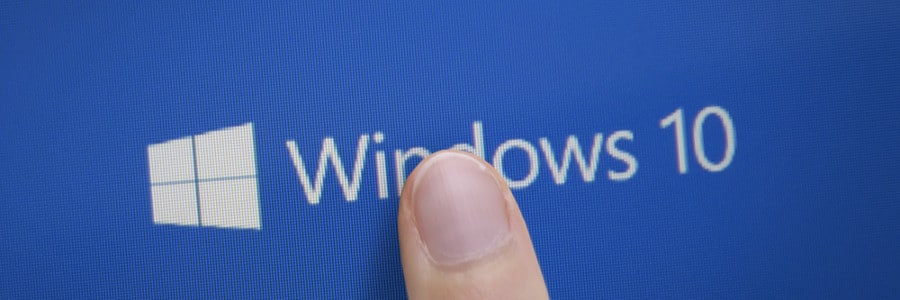In a word … no. Jumping the gun on upgrading could prove troublesome for banks.
The Windows Operating System (OS) seems like it has been with us forever. Every time a new version comes out there is always a rush to upgrade. But new system releases are frequently filled with bugs … and Windows 11 is no different. Upgrading now could cause a myriad of problems and it is our recommendation that you should wait until software and system providers have had time to fully test and certify with Windows 11.
Updating to Windows 11 is easy … too easy. Many people are accidentally upgrading by simply clicking on a pop-up message from Microsoft. Others are finding themselves with Windows 11 because they were unaware the computer they just bought came pre-loaded with Windows 11. Both of these scenarios can be fixed because Microsoft has tools to enable you to roll back to the previous version (if done quickly), but they do not make it easy.
Many unsuspecting computer users are frustrated with how complicated and time-consuming this rollback is. Many times, it takes help from a Microsoft expert and even then it can be challenging. The best bet is to avoid this situation in the first place. Communicate with your bank employees to look out for the pop-up Microsoft message to keep from an accidental upgrade.
The good news is that you have plenty of time to before an update will be required. Microsoft has announced that they will continue to support Windows 10 until October 2025.
Specific concerns about Windows 11
New Functionalities:
Virtualization Based Security (VBS) isolates many attack surfaces that could be used to infect a machine or compromise data by isolating functions within windows operating system and its applications. This sounds great but many cybersecurity professionals question if this feature will simply increase the attack surface.
Older hardware may not be able to support it:
This new security feature demands a bigger, better processor so your current computer may or may not be capable of upgrading.
A different kind of end-user environment:
Windows 11 has a noticeably different end-user environment. For example, with Windows 11, all the major processes (such as the Taskbar, Start Menu, File Explorer, etc.) exist, but they all have different icons and very unfamiliar layouts when compared to Windows 10.
Microsoft has also moved the Taskbar towards the center, rather than from the usual left-hand side that we all have become accustomed to. As more applications are opened on your desktop, the Start menu keeps moving further from the center to the left-hand side in incremental amounts.
A loss of features:
As stated, many people have become completely used to the features of Windows 10, just because it has been around for so long. With Windows 11, there is a very good chance that you could lose some of these favorite features that you have relied upon so much to get your job tasks done.
Legacy Applications:
As with any significant update, there are application compatibility issues with Windows 11. History has taught us that software creators simply need time to adapt to new operating systems.
Conclusions
There are definitely glitches with any new operating system, but if you give your software and system providers time to fully test and certify with Windows 11, the transition will be much smoother. Luckily, Microsoft is giving everyone ample time to adjust. If you are ready to learn more about RESULTS IT Solutions and if we’re the right partner for your business, give us a call or visit our contact us page and schedule a meeting with one of our IT experts.

10 Steps to Cyber Resiliency Guide
Free Download

